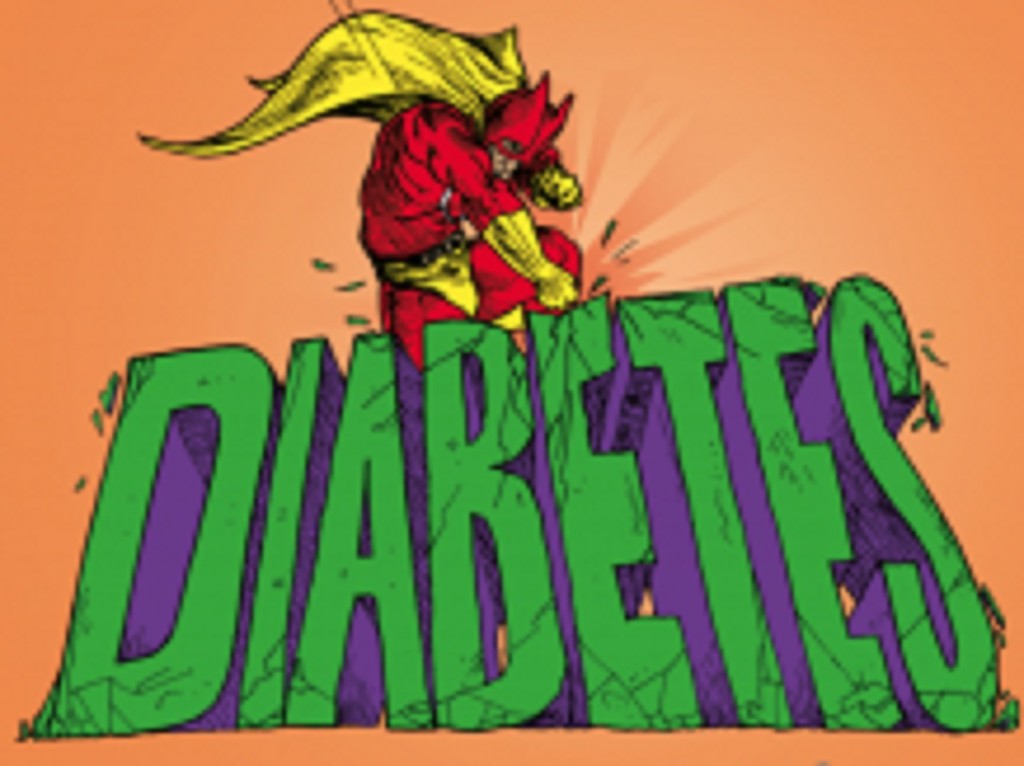Today is World Health Day and the emphasis this year is on diabetes. This year, the goals are to: scale up prevention, strengthen care, and enhance surveillance.
Diabetes runs in my family and I was diagnosed a few years ago. Last year my doctor upgraded my diagnosis from pre-diabetes to type 2 diabetes based on my blood results and wanted to start me off on a low dose medication. I promptly declined and informed her that I will “up my exercise, down my calories and add a glucose health supplement.” Two months ago I went for my annual check-up and my doctor was very impressed with my blood results and my weight. “What are you doing?” she asked. I proudly rattled off my game plan!
According to the World Health Organization (WHO), the burden of diabetes is increasing globally, particularly in developing countries. Although the causes are complex, the increase is partly due to rapid increases in overweight, including obesity and physical inactivity. In 2012, the disease was the direct cause of 1.5 million deaths, with more than 80% of those occurring in low- and middle-income countries. WHO projects that diabetes will be the 7th leading cause of death by 2030.
Diabetes is a chronic disease that occurs either when your pancreas does not produce enough insulin or when your body cannot effectively use the insulin it produces. Insulin is a hormone that regulates blood sugar and gives us the energy that we need to live. If it cannot get into the cells to be burned as energy, sugar builds up to harmful levels in your blood.
There are 2 main forms of diabetes:
- Type 1: People with type 1 diabetes typically make none of their own insulin and therefore require insulin injections to survive.
- Type 2: People with type 2 diabetes usually produce their own insulin, but not enough or they are unable to use it properly. Also, people with type 2 diabetes are typically overweight and sedentary, 2 conditions that raise a person’s insulin needs. 90% of people with diabetes fall into this category.
The main goals of the World Health Day 2016 campaign are:
- Trigger a set of specific, effective and affordable actions to tackle diabetes. These will include steps to prevent diabetes and diagnose, treat and care for people with diabetes.
- Increase awareness about the rise in diabetes, and its staggering burden and consequences, particularly in low- and middle-income countries.
- Launch the first Global report on diabetes, which will describe the burden and consequences of diabetes and advocate for stronger health systems to ensure improved surveillance, enhanced prevention, and more effective management of diabetes.
One of the key messages of today’s World Health Day promotion is that diabetes is treatable. Over time, high blood sugar can seriously compromise every major organ system in your body, causing heart attacks, strokes, nerve damage, kidney failure, blindness, impotence and infections that can lead to amputations. Diabetes can be controlled and managed to prevent complications. Increasing access to diagnosis, self-management education and affordable treatment are vital components to scale up prevention and strengthen care.
RESOURCE:
Facts About Diabetes by American Diabetes Association
Found value? Feel free to share!!
To Your Success,
Althea
Althea A. McLeish Wilson, RN, MSN
Educate . Empower . Encourage
Promoting inner health & outer beauty!
Did You Find This Helpful? If so, please feel free to share!

